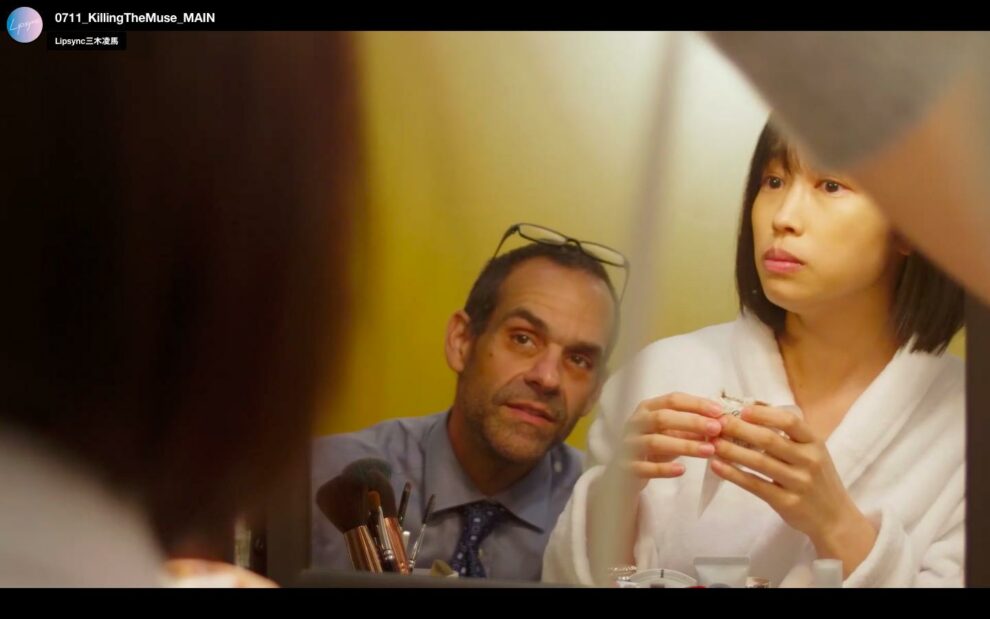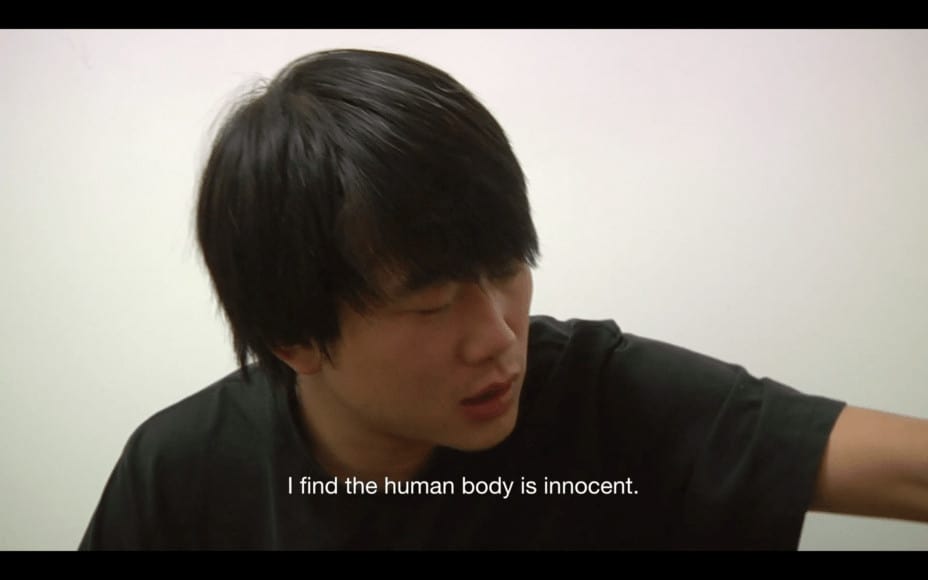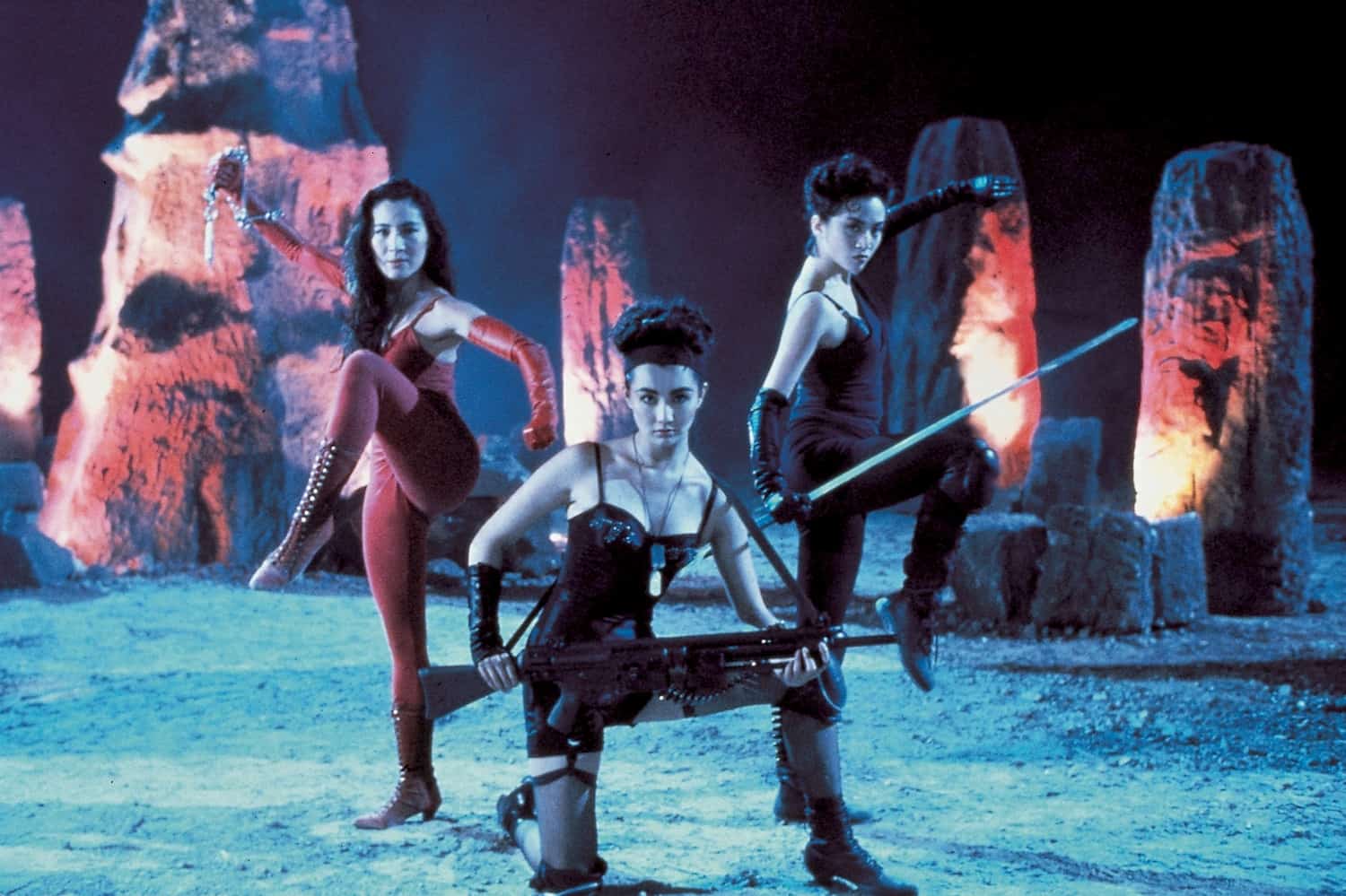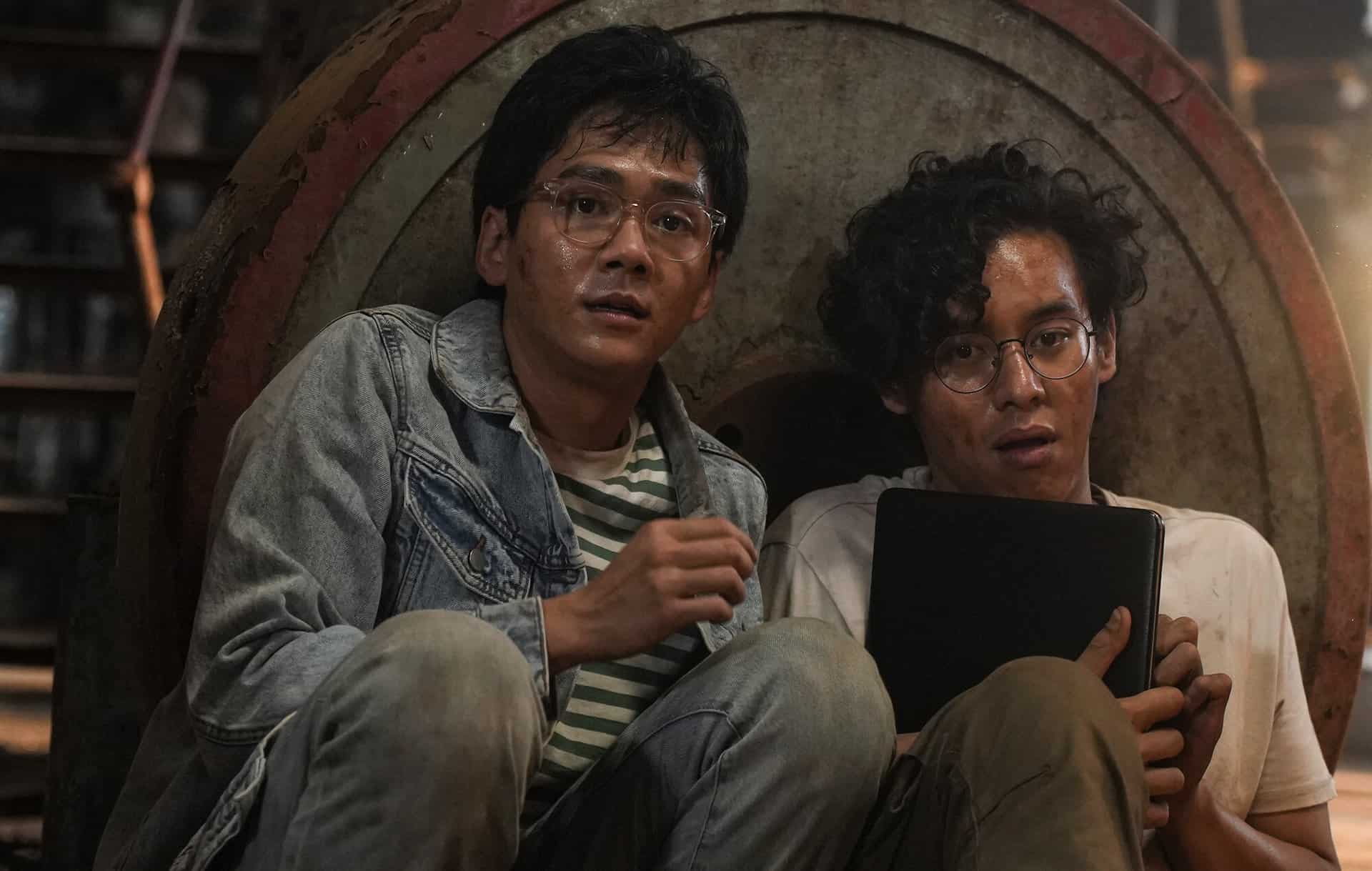In a discussion we had with Steven J Martin and the “usual suspects” of the movies he has (co)directed (whose video you can find below), he mentioned that he was planning to move away from the aesthetics he implemented in his previous films, coming up with something more cinematic. Even if the statement does not ring 100% in his latest work, “Killing the Muse”, the fact remains that this is the most cinematic work the collective have presented so far.
“Killing the Muse” review is part of the Submit Your Film Initiative

One of the mediums he uses to achieve that is the currently popular film about a film concept, with the movie starting during a scene where two actresses are being shot, with the whole sequence highlighting how (low budget) filmmaking works. At the same time, the quality of the acting of the two, Nana Akuzawa and Naoki Kondo, becomes quite apparent, with both of them getting in and out of their roles with ease, and the latter in particular showing how easy it is for her to cry on camera. The amalgam that shapes the movie's narrative continues in the same fashion, but also adds a number of elements, with the actors playing their real selves, in a story that eventually becomes dramatic, as the struggling director takes his life not being able to handle the critique of his own associates and the issues he faces in his marriage. As he is reborn as his muse later on, a metaphysical aspect also becomes a factor, while “Killing the Muse” eventually also functions as an homage to the previous works of the group.
The stage-play/dialogue-heavy approach is here once more, with the movie being filled with various comments, which I felt, though, that are more interesting than ever, perhaps because a number of them focus on cinema. in an approach by the cast and crew that includes a lot of introspection. The question of how long one should continue dealing with cinema when it becomes obvious that financial, at least, success is nowhere to be found, inevitably also taking a toll on their personal lives, is a prevalent one, with Martin giving a rather pessimistic answer, which is, however, toned down by the actual movie.
The concept of the muse is also examined, essentially giving its film its metaphysical element, while the narrative also deals with a more “in-depth” analysis of the concept of filmmaking. The characterization of ‘interesting', which us critics use quite frequently when we want to avoid passing on critique, the whether men should direct lesbian-themed movies considering they have never felt what they feel, rape scenes in movies, and the way casting works are all examined here, in an approach that is as sincere as it is thorough.
Check also this interview
Martin however, does not stop there and the film also deals extensively with sex and the way it affects people, both within and outside of relationships, the way the people who work in movies connect with each other on various levels, and the where the artist stops and the human begins. Quite amusingly, humor is also interspersed throughout, both through cursing, and with the cast and crew being quite self-deprecating on occasion, with Kozue Ito in particular thriving in that regard.
In terms of cinematic values, Martin manages to move away from the stage play aesthetics that dominated his previous works, although that approach is still dominant in the movie. The film-about-a-film approach works quite well in that regard, while there are a number of scenes that can only be described as avant-garde with their experimental approach. A recurring ‘trick” in particular, of actors speaking while the background and the foreground changes works quite nicely here, highlighting the excellent job by Martin and Ryoma Miki in the editing, and also adding to the entertainment the movie offers. The more extensive use of music, essentially a new element in the director's filmmaking, is also excellent, with rock/stoner tracks fitting the images and the dialogue in an almost uncanny way. Lastly, the collage of scenes from the previous movies that forms the finale also works nicely, inducing the movie with a sense of nostalgia while creating a very appealing ambiguity regarding the whether this is a tribute or a goodbye.
“Killing the Muse” still includes some of the issues of the previous works of the group, particularly in the amount of dialogue included, but the fact that the filmmakers are moving towards a more cinematic approach is quite evident, as much as it is a pleasure to watch, in most probably what is their best work so far.















